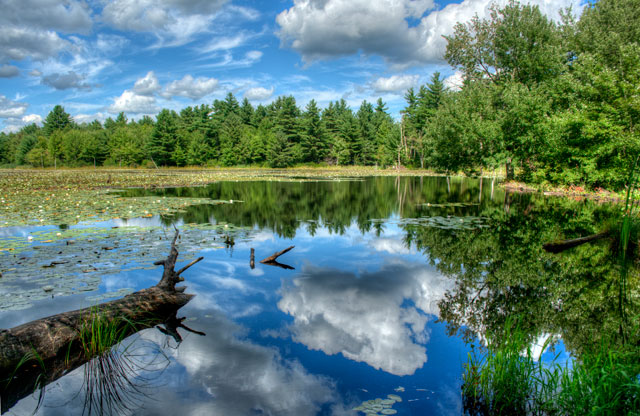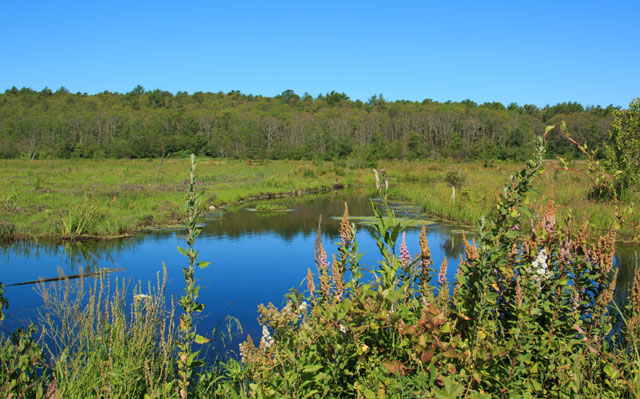We are happy to report that Mass Audubon was just awarded accreditation by the Land Trust Accreditation Commission, an independent program of the Land Trust Alliance, which supports land conservation groups nationwide.
Accreditation provides Mass Audubon the benefit of an unbiased outside assessment from other land conservation professionals as the organization seeks to maintain its standard of excellence. The designation culminates a two-year process that included submitting extensive documentation and a rigorous review of our land acquisitions and practices.

© Nathan Goshgarian
With more than 35,000 acres under protection, Mass Audubon is the largest owner of privately conserved land in the state. As such, it serves as one of the most influential land trusts in New England and helps engage the public in appreciating and supporting the preservation of significant open space.
Our statewide wildlife sanctuary system, stretching from the Cape and Islands to the Berkshires, offers extraordinary destinations for public visitation; conservation research and study; and places to engage visitors of all ages and abilities in a wide range of education programs and outdoor explorations.
“This designation enhances Mass Audubon’s reputation as a model for responsible land conservation and stewardship, not only in how we approach our own projects, but as a willing partner with other conservation groups and government agencies,” said Gary Clayton, Acting President and Vice President for Conservation Programs.
The concept of Land Trust Accreditation was first put forth by the Land Trust Alliance a decade ago as in response to IRS scrutiny of several high profile real estate transactions involving land trusts employing questionable practices. The theory behind accreditation is simple: To encourage more land trusts to put policies and procedures in place to ensure that their work is carried out at a consistently high level of quality—ethical and otherwise.
As a committed leader of the vibrant land trust community in Massachusetts (where the land trust movement began in the 1890s and is now home to more land trusts than any other state) we readily acknowledge that the rigorous framework for Land Trust Accreditation is definitely not for every trust.
That said, Mass Audubon has long advocated for trusts at all levels to pay attention to the Standards & Practices upon which Accreditation is based. Our hats are off to the Massachusetts Land Trust Coalition for their commitment to working with smaller trusts to enhance their familiarity and use of Standards & Practices for land trust operation.
Learn more about our land conservation efforts at massaudubon.org/land



